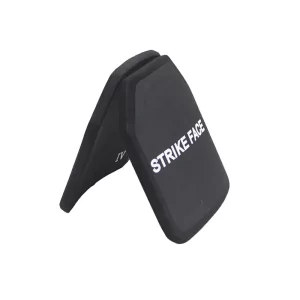Categories
Tags
-
#Human Hair Wigs
#WOW Gold
#sex toys
#ラブドール
#Forex Trading
#Nitrogen Compressor
#リアルドール
#The good quality Nike running shoes would reflex most of the strong sunshine.
#Best gear for runners in 2021
#THE BEST NIKE RUNNING SHOES FOR MEN IN 2021
#Running Warehouse Shoe Launch Calendar
#The Pittsburgh Steelers Archive of Exceptional Jerseys
#Mark Ingram Lands With Houston Texans
#Top 10 Best Football Kits Ever
#ダッチワイフ
#forex scams
#led video wall
#wholesale furniture
#Shanghai news
#custom Jewerly
#evehicle
#big bongs
#buy wow gold
#davinci
#リアルラブドール
#ev
#electric motorcycle
#software jewelry
#smart home accessories
#davincimotor
#Universal Muffler
#Automatic Cnc Lathe
#Ball Valve Electric
#Fiber Jumper
#Candela Tin Box
#Wood Vinyl Plank
#Synthetic Paper Label
#Enzyme Powder
#France Shipping
#Condenser Expansion Machine
#Blue Protection Tape
#Industrial Juice Extractor
#Home furniture manufacturer
#Food Packaging
#Gabriel Syringe
#wikifx
#film faced plywood
#custom fashion jewelry
#peeling a dragon fruit
#yeezy australia
#grape juicer machine
#uabat shoes
#Magazine Packing Machine
#electric gate valve
#White Wood Vinyl Plank Flooring
#Enzyme Powder Tosowoong
#ozone generator
#nfljerseywholesale
#custom jerseys
#kobe bryant black mamba jersey
#nfl jerseys wholesale
#Shanghai scenic spots
#Diuretic and Anti-inflammatory Pill
#Replica nfl jerseys china
#Cheap jerseys from china
#Logistics Robotics
#Buy WoW Items
#custom nfl football jerseys cheap
#jerseys wholesale
#World of Warcraft Items
#replica jerseys
#Global Robotics Services
#Robots on Demand
#WoW Items
#motorbike testing equipment
#Buy World of Warcraft
#best smart locks wifi
#best home security
#Trade forex
#bluetooth front door lock
#GRS
#weave hair
#Binance Referral Code
#Industrial hammer crusher
#fruit Seed Removing Machine
#3d design
#best commercial security company
#Twyst Flashlights
#Stationalry Led Pis
#Silicone Kitchen Utensils
#Anti-surge Flood Light
#Bh-sandwich Panel Series
#Elastic Pin Coupling Wholesaler
#Poultry Farms
#Rectangular Tenoner Making
#paper lid machine
#rotary potentiometer
#Car Gps Tracker
#temperature sensor cable
#water cool plate factories
#Fitness Watch Factories
#coupon feature
#luxury candle jars wholesale
#ebike for sale
#shanghai covid cases
#electronic safe lock
#couponfeature
#First Aid Kits
#Melbourne City Karaoke
#Hemostatic Gauze
#shanghai stock exchange news
#Robotics as a Service
#China Coronavirus
#best smart home company
#octastream
#tektro aries
#fiber optic cleanner pen
#jst connector production
#Elastic Pin Coupling
#odm fragrance bottle
#china economy
#wifi smart door lock
#Dongnan Micro Switch
#best smart home company 2022
#RaaS
#bongda24h
#Bdlive
#VeboTV
#XemBD
#Cheap Jordans
#electric bike
#free online 2d drafting
#2d cad drafting
#Aluminum Die Casting Auto Parts
#Acrylic Deoxidizer
#Rice Burger Forming
#Sintered Stone
#Packaging Boxes 1 Layer
#double deck compression forming machine
#Alfa Laval Plates
#housing triproof light
#motorcycle speaker production
#Co2 Laser Cutting Machine
#Extension Socket
#Custom-made Electronic Micro Switch
#Electric Tape Making Machine
#Perforated Sheet Leveller
#running track
#Precision Cold Extrusion
#Tpm 3d
#Two Stage Rotary Vane
#2d cad
#china ballistic tiles
#tissue packing machine
#paper bag machine
#laser cutting line
#aluminium cladding texture
#Wedge Wire Screen
#smart homes
#China business latest news
#fingerprint front door lock
#CAD Activation
#mechanical cad
#stop the bleed
#live Streaming
#Mobile live Streaming
#IG Pros and Cons
#hemostatic agents
#Amorphous core
#Metal Cloisonne Pins
#Gutter Sealant
#Uv Laser Marker
#China To Costa Rica
#Forex Day Trading
#aluminum housing triproof light
#Hallway Ceiling Lights
#Upholstered Outdoor Sofas
#Sticker Labels
#Vibration Feeder
#Two Stage Rotary Vane Vacuum Pump Seller
#Saudi Arabia Projected Window
#WikiExpo Asia
#留服认证
#Alloy wheels
#ifak pouches
#Oem Wooden Tea Box
#Food Packaging Boxes
#Dymo 6x4 Labels
#smart home company 2022
#tencent news
#American college degrees
#hemostatic granule
#2d drafting
#fingerprint smart lock
#shanghai pandemic
#jzjy001
#hemostasis
#high security lock
#china business news
#car tires
#best ifak pouch
#smart door lock
#off road tires
#combat gauze
#car tire
#best bluetooth door lock
#Storage Jar
#Golf Rangefinder
#Door Hinge Hl017
#Kitchen Aluminium Plinth
#Sticker Paper Manufacturers
#bullet proof vest
#av pouches
#Water Filter Water Filter
#Men's Wallet Carbon Fiber
#Box Panel Explosion Proof
#Kolor Sorter Optyczny
#infrared headphone
#oem music instrument
#Biodegradable Packaging
#Bayonet Lock Coupling
#Nanotube Thin Film
#Woven Shopping Bag
#Controlled Expansion Alloy
#best bullet proof vest
#hemostatic combat gauze
#Wood Clamp
#pin bead mill
#20th CPC national congress
#cad and cam systems
#smart window sensors
#summer car tires
#IFAK kit
#best film
#china 20th party congress
#computer aided
#best fingerprint lock
#kongfuka
#smart home security products
#kongfuk
#airpods cases
#CIIE Shanghai 2022
#home security solutions
#international import expo
#commercial safe locks
#bulletproof zone customer
#bulletproof zone
#Rat Trap
#odm dry ice cleaners
#titanium parts producer
#Low-e Glass Manufacturers
#Selective Laser Sintering
#HEADPIECES
#Foam Glazing Tape
#through conduit gate valve
#Switchboard Enclosures
#Aluminium Plates For Transportation
#linear weigher
#Silicone Injection Molding
#jual nitrogen generator
#Ventiladores 18 Pulgadas
#Flexographic Flat Printer
#20th national congress
#cad designer software
#smart home door sensor
#Insect Glue Trap
#china party congress
#bullet proof zone
#Caulk Strip
#hemostatic granule syringe
#china news
#Robot Subscription
#mechanical cad drawings
#wifi security lock
#quikclot combat gauze
#Fat Tire Electric Bikes
#Cotton Shorts
#lock manufacturer
#CIIE 2022
#hemostatic granules
#Mouse Glue Trap
#import expo china
#bulletproof vest
#Detectable warning tape
#Car Door Edge Guard
#Cockroach Trap
#CAD software
#security door sensors
#FORTUNE Tire
#Butyl Seal Tape
#door and window sensors
#car tires all season
#Short Fit Shirt
#fingerprint lock for door
#on and off road tires
#NETZSCH Pump Accessories
#Hard Armor Plates
#male masturbators sale
#rusuntacmed
#ifak army
#ebike lock
#smart home securit
#empress of china
#sex toys extreme
#Fly Glue Board
#fat tire electric bike
#cad file download
#secure locks
#chinese movie
#SCH Pump Accessories
#china alphabet
#LED screen supplier
#automatische masturbator cup
#smart home solutions
#China economy news
#testing equipment exporter
#Yard rangefinder Hunting
#Aluminium Slugs For Sport
#Cold Extrusion Part
#traditional chinese women
#Transparent LED Window
#oem pcb prototype
#Current sensor core
#light tower
#Sand Casting Parts
#Tape Making Machine
#Optical Cable Filling
#Battery Energy Storage
#pin magnetic connector
#Outdoor Wall Fan
#Robots as a Service
#accessories for doors
#hard armor panels
#HD LED DISPLAY
#Wallet Carbon Fiber
#Table Lamp
#upholstery pouf
#nitrogen compressor exporter
#litho flute laminator
#oem electronics toy
#china glass beads
#oem laminated non woven bag
#motorcycle testing equipment
#boarding pass
#terracotta panel cladding
#Gstarsoft Tips & Tricks
#chinese alphabet a to z
#Bamboo Pendant Lamp
#oil lubricated guide bush
#woven bag
#Door Handle
#Expansion Alloy
#oem pcb prototype manufacure
#Bq Rod Shoe
#filtro de aceite
#linear drive
#hardware electromechanical
#wet wipes making machine
#Spring Machine
Archives
Recent Videos
Let's talk!
HOW TO SELECT THE RIGHT BODY ARMOR FOR YOUR SPECIFIC NEEDS?
-
HOW TO SELECT THE RIGHT BODY ARMOR FOR YOUR SPECIFIC NEEDS?
If there is a chance you could find yourself in a situation where bullets are flying, it may be time to buy a bulletproof vest. These vests are usually made of very strong Ultra High Molecular Weight Polyethylene Fibers like Dyneema or strong Aramid fibers. Oftentimes, when ballistic panels are being made, the body armor manufacturer will use both fabrics together in a so-called hybrid panel design.To get more news about bulletproof zone.com, you can visit bulletproofboxs.com official website.
When selecting your bulletproof vest, it's critical that you understand and consider all options before making your decision. You must ensure that the vest you choose fits you properly so that you have maximum protection. You should be fully educated on the various and be properly measured so that your vest fits comfortably while offering you the right level of protection.

Before doing anything you need to find out if it is legal for you in your area to buy and wear body armor. People who've been convicted in a court of law of a violent crime are not legally permitted to wear body armor anywhere in the United States.Also, there are countries, like Australia, where you need to get a permit before wearing a bulletproof vest. Go online and search federal laws as well as laws in your local area regarding the wearing of ballistic vests. Verify whether or not a permit is needed to buy one. If one is needed, follow the laws and obtain the required permit before trying to make a purchase.
Decide how much you want to spend on your vest and do not go over your budget. It's easy to spend more on a vest you like the style of or one that has a higher level of protection than you need or some additional features. But, if you keep looking for what you realistically need, you should be able to stay within budget.If a bullet strikes your vest the ballistic plate can crack or otherwise be damaged. You have no choice but to replace it. We also recommend that every bulletproof vest be replaced every five to ten years even if it is rarely used. After just two years, the materials it's made of will start loosing strength at a very slow pace. A vest that's expired might be able to stop a bullet, but you don't want to take any chances.
If you're just an average civilian or an investigator working undercover, you'll want to wear a concealed vest under your clothing. Military personnel and those working in law enforcement typically wear external vests with body armor plates since they are much easier to quickly put on and take off.
If you plan on carrying a gun yourself, the vest you wear should be strong enough to stop a bullet fired from your own gun. Preferably at point blank range. This could save your life if someone disarms you and fires at you with your own weapon.
If the threat you are most apt to encounter would be from handguns, a Level IIA, II or IIIA ballistic vest, would be recommended. These level vests are relatively light and thin; yet can still protect against small arms fire.
However, if you are entering more dangerous territory, like a war zone, you'll need a higher level of protection, such as a Level III or IV vest capable of stopping rifle fire. It is crucial that you determine which type of environment you're going to be facing and all potential threats:

